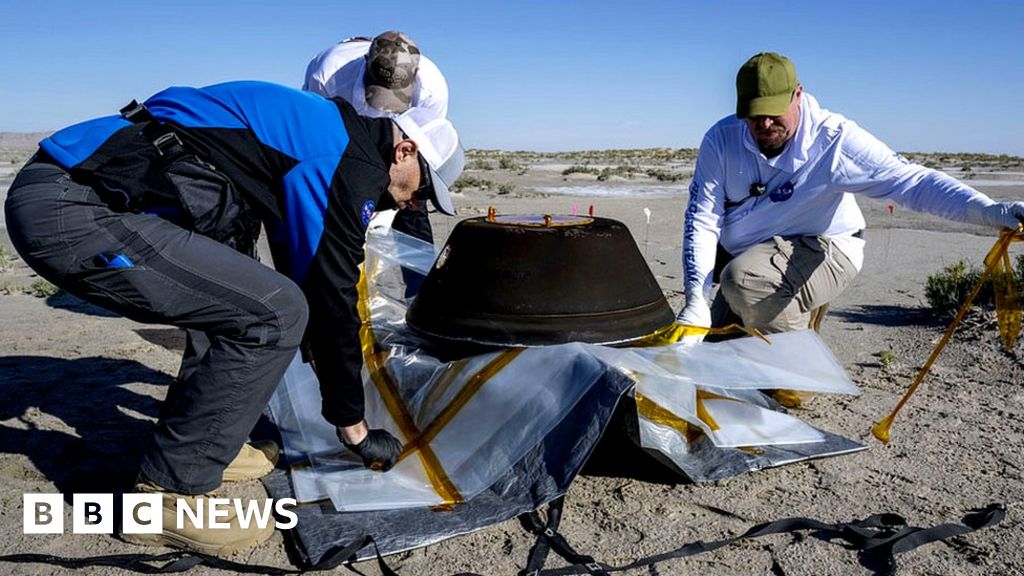This website uses cookies so that we can provide you with the best user experience possible. Cookie information is stored in your browser and performs functions such as recognising you when you return to our website and helping our team to understand which sections of the website you find most interesting and useful.

"One of the most important parts of a sample-return mission is we take 75% of that sample and we're going to lock it away for future generations, for people who haven't even been born yet to work in laboratories that don't exist today, using instrumentation we haven't even thought of yet," Nasa's director of planetary science, Lori Glaze, told BBC News.



 Africana55 Radio
Africana55 Radio 
